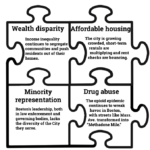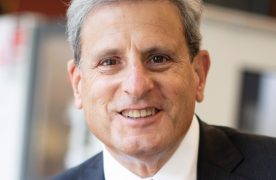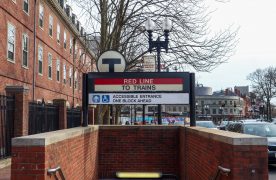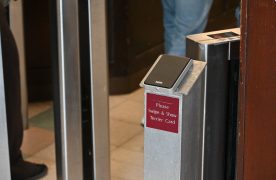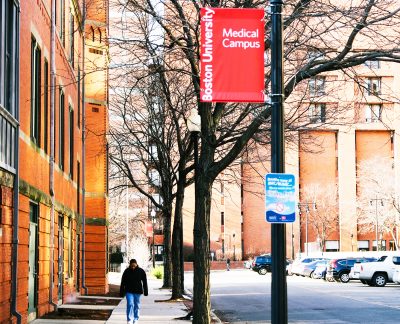
One month after Boston Mayor Martin Walsh announced the city’s initiative to revitalize Lower Roxbury and South Boston neighborhoods, the city’s effort, in partnership with Boston University’s Medical Campus and Project Place, is currently in full swing.
BU joined Walsh and Project Place, a nonprofit organization, in December to improve the area around the Melnea Cass Boulevard and Massachusetts Avenue intersection. The goal is to create a safer neighborhood around the university’s Medical Campus and work towards a solution to homelessness in the city, The Daily Free Press reported on Dec. 12.
The employees from Project Place are active and present in the community, caring for the neighborhood and addressing homelessness and drug abuse issues in the area, said Marcie Laden, the director of development for Project Place.
Laden said although landscaping and planting are less evident in the current winter climate, the neighborhood has been noticeably well kept since the coalition began its work.
“They’re really doing a great job at keeping it clean every day,” Laden said. “It’s not like they come through and then it piles up until it’s a mess again. They’re doing it consistently.”
In addition to maintaining and beautifying the neighborhood, Laden said that workers from Project Place have been acting as role models for the homeless and underprivileged in the area, as many of them had to overcome similar obstacles in the past.
“They communicate with them, they talk to them, they’re not just coming by and sweeping through, there is a real interaction that makes that role modeling possible,” Laden said. “It is a genuine interaction.”
Laden said she hopes the workers’ presence will inspire the homeless people in the neighborhood to reach out for help, especially in finding jobs.
“We believe that people can change their lives, particularly homeless folks, through work,” Laden said. “It gives you a chance to not only build your own confidence and believe in yourself so that you can move forward, but it gives you the ability and economic resources to move forward.”
As for the future of the initiative, Project Place plans to continue working in the neighborhood as long as they are encouraged to do so, Laden said.
“I think that the partnership is going really well. The city and BU seem to be pleased with our work and committed to continuing to keep their neighborhood going and to keep that community improving,” Laden said. “As long as that commitment is there, which I don’t foresee changing, particularly on the city’s part, I think this will be one of our ongoing projects.”
Jim Greene, a homeless advisor from the Boston Department of Neighborhood Development, said the idea for the collaboration was developed over the summer, when Walsh brought several different departments together to talk about city improvements.
“We began to meet with neighborhood partners from Newmarket Square, the South End and Roxbury to talk about what we could do quickly to have an initial impact and the longer term work we need to do to help the vulnerable people who were in the neighborhood,” he said. “I think everybody agreed that we needed to invest a new level of energy and effort to improving things in the Melnea Boulevard and Massachusetts Avenue area.”
Several Boston residents said they support the project, particularly because of the opportunities it may offer homeless people in the city.
Meagan Hemeon, 27, of Jamaica Plain, said homelessness has become a major issue throughout the city. She emphasized the importance of helping those without a home.
“Especially since all the shelters closed over on Long Island, I think it’s really important to be doing something for these people because they were so actively displaced,” Hemeon said. “There really now isn’t enough money in the city to be able to give the same level of shelter and transitionary housing that they deserve.”
Dishon Laing, 29, of Dorchester, said he believes the initiative’s effort to help find stable jobs for homeless people may be the answer to their problems.
“I think anytime you could take people who don’t have means of making money and provide them a service such as getting them a paid work so that they don’t have to rely on other people, it’s a great service,” Laing said. “Then they can start to provide for themselves.”
Edward Byrne, 67, of Fenway, said he hopes to see homeless people get a moral boost from their work.
“I think what happens a lot of the time to homeless people is that they lose fate,” Byrne said. “I think this will give them some confidence and dignity.”


